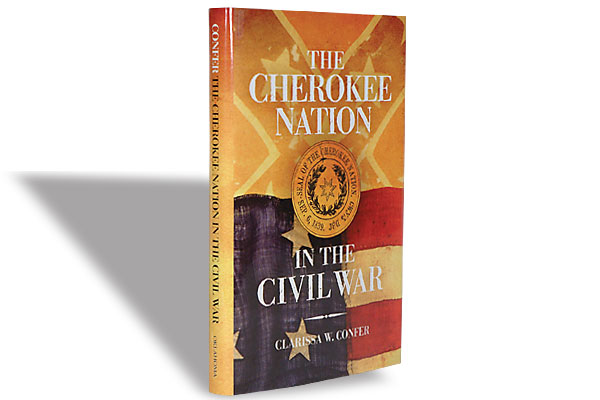 The Civil War was traumatic to most Americans, but it was a double whammy to the Cherokees. Already badly split into warring factions over acceptance of exile via the painful Trail of Tears, their nation then faced a greater civil war.
The Civil War was traumatic to most Americans, but it was a double whammy to the Cherokees. Already badly split into warring factions over acceptance of exile via the painful Trail of Tears, their nation then faced a greater civil war.
Clarissa Confer makes it clear that although whites pressured the Cherokees, they were not dragged into the war. Many Cherokees were slaveholders themselves, so both Principal Chief John Ross and his main rival, Stand Watie, accepted a Confederate treaty of alliance. Watie became a Confederate general, but Cherokees fought on both sides. Their impact, overall, was small. The Indians were natural guerrillas, but they did not perform well in masses of troops. During post-war Reconstruction, the Cherokees lost their land and tribal autonomy. But Chief Ross, who had switched to the U.S. from the Confederacy, managed to prevent his nation from being, literally, split in two. —Richard H. Dillon




